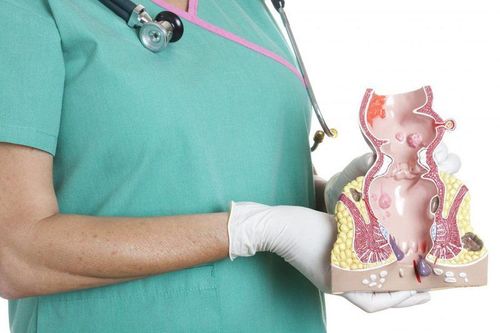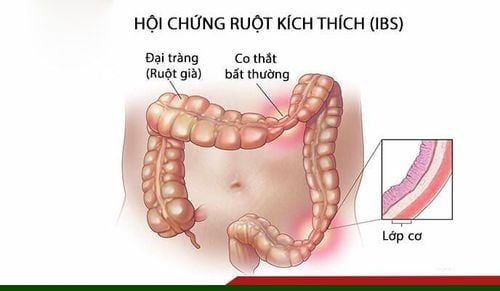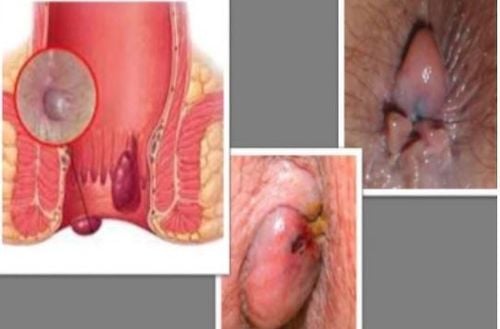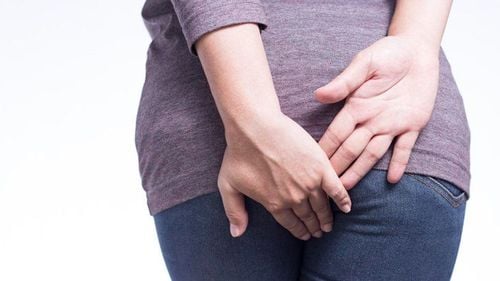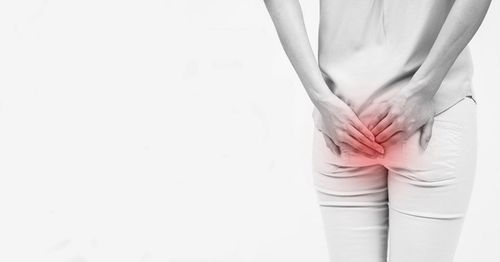1. What is hemorrhoids?
Hemorrhoids are a condition where the veins in the rectal area become swollen. When these blood vessels swell abnormally, you may feel a soft mass that can protrude from the anus.
Hemorrhoids can range in size from small like a raisin to large like a fresh grape. They may cause itching or pain and can even lead to rectal bleeding, especially during bowel movements.
Postpartum women experiencing hemorrhoids is a common condition during pregnancy and after childbirth. In most cases, hemorrhoids that occur during pregnancy will disappear soon after delivery, especially if you take care to avoid constipation (with some simple measures outlined below).
However, sometimes hemorrhoids persist after childbirth: about 25% of women will have hemorrhoids postpartum, and they may last up to six months after delivery. While the hemorrhoids may shrink, the symptoms may disappear and then recur.
There are two types of hemorrhoids: internal hemorrhoids (where the affected veins are located inside the anal sphincter) and external hemorrhoids (where the affected veins protrude outside the anus).

2. Why do I get hemorrhoids?
Pregnancy makes you more prone to hemorrhoids (as well as swollen veins in the legs and sometimes in the vulva) for several reasons.
As the uterus expands to accommodate the growing fetus, it puts pressure on the pelvic veins and the inferior vena cava, which are large veins on the right side of the body that carry blood from the lower limbs. This pressure can slow blood circulation from the lower body, increasing pressure on the veins beneath the uterus and causing them to dilate.
In addition, the increase in the hormone progesterone throughout pregnancy causes the blood vessel walls to relax. Progesterone also contributes to constipation by slowing down the process of intestinal motility. Constipation (another common issue during pregnancy) can cause or exacerbate hemorrhoids because the abdominal pressure tends to increase during bowel movements, and this increase in pressure leads to hemorrhoids.
You may also have developed hemorrhoids during the pushing phase of labor.
3. What to do about hemorrhoids after childbirth?
Here are some ways to help reduce pain caused by hemorrhoids:
- Avoid sitting or standing for long periods to reduce pressure on the rectal veins. Lie down while breastfeeding, reading, or watching TV.
- To relieve pain temporarily, you can use acetaminophen or ibuprofen, even if you're breastfeeding. However, do not exceed the recommended dosage, and avoid using aspirin (or products containing aspirin) if you're breastfeeding. Contact your doctor if the pain persists and symptoms do not improve.

- Apply ice (wrapped in a soft cloth) to the affected area multiple times a day. Ice can help reduce swelling and discomfort.
- Soak your buttocks in warm water in a Sitz bath (a small tub designed for soaking the lower body, particularly the anal and rectal areas) or a small plastic basin. A Sitz bath allows you to soak the rectal area simply by sitting down. If you can't find one at the hospital, you can buy a Sitz bath at any pharmacy. Try soaking a few times a day for about 10 minutes.
- After each bowel movement, clean your anus gently and thoroughly with a plastic spray bottle. Or try using wet wipes containing natural astringent (witch hazel) specifically designed for hemorrhoid sufferers. Use soft, unscented toilet paper to reduce irritation.
- Use soft, unscented toilet paper, which is less likely to cause irritation than other types.
- Ask your doctor about numbing medications or suppositories. There are many hemorrhoid pain relief products available on the market, but you should consult your doctor before trying them. Remember that most of these products should only be used for a short treatment period (one week or less). Long-term use may worsen inflammation.
- Avoid sitting too long on the toilet. Straining too hard creates significant pressure on the rectal area. To allow the anus to heal, be careful not to strain excessively and avoid sitting on the toilet longer than necessary.
- Add fiber to your diet. Fiber helps soften stools and increases stool bulk. A fiber-rich diet can help treat and prevent constipation, preventing hemorrhoids from worsening. Fiber-rich foods include fruits, vegetables, and whole grains.
- Drink plenty of water. Staying hydrated also helps prevent constipation by softening stools.

- Keep the anal area clean. Keeping the anal area clean helps prevent increased irritation that could hinder the body’s recovery process.
- Washing the area with warm water is sufficient.
- Use wet wipes. Using moist wipes to clean the anal area will feel gentler than dry toilet paper. You should choose unscented wipes to avoid chemicals that could cause irritation.
- Topical medications and supplements can also help treat hemorrhoid symptoms. If you are pregnant or breastfeeding, consult your doctor before using any over-the-counter treatments.
- Stool softeners: Stool softeners help moisten your stool so that it can pass more easily through the intestines and out of the body.
- Fiber supplements: If you have adjusted your diet and are still not getting enough fiber, you may consider using fiber supplements. These supplements come in many forms, including powders that mix with water. If you are pregnant or breastfeeding, make sure to discuss with your doctor before using this product.
- Medicated wipes: Hemorrhoid medicated wipes typically contain astringents, hydrocortisone, or lidocaine, which can help relieve itching, pain, and inflammation.
- Hemorrhoid creams and suppositories: Hemorrhoid creams and suppositories help reduce pain and inflammation both externally and internally.
4. How to speed up the recovery process from postpartum hemorrhoids?
Adhering to a healthy routine can help speed up recovery and prevent hemorrhoids from worsening in the future. First, implement measures to avoid constipation:
- Eat a high-fiber diet that includes plenty of fruits, vegetables, whole grains, and legumes.

- Drink plenty of water (8 to 10 cups per day).
- Exercise regularly, even if time is limited, simply taking a short brisk walk can help. Don't wait until you feel the urge to have a bowel movement before going to the bathroom. Waiting can make the stool harder and more difficult to pass through the digestive tract. Additionally, try not to strain excessively when using the bathroom and avoid sitting on the toilet longer than necessary, as this can increase pressure on the anal area. You can also ask your doctor about using fiber supplements or stool softeners.
- Do Kegel exercises daily. Kegel exercises help improve blood circulation in the rectal area and strengthen the muscles around the anus, reducing the risk of hemorrhoids. This exercise also helps tighten and firm the muscles around the vagina and urethra, which can help your body recover after giving birth.
5. When should I contact a doctor?
You should contact a doctor if you have followed the above measures but your hemorrhoid symptoms do not improve, or if you notice bleeding from the anus or rectum.
Additionally, you should contact a doctor if you notice that the hemorrhoid has become hard and more painful. This may be a sign that a blood clot has formed in the internal hemorrhoid, and you may need a minor surgical procedure to treat it.
In some cases, you may need to see a specialist for treatment to reduce the size of the hemorrhoids.
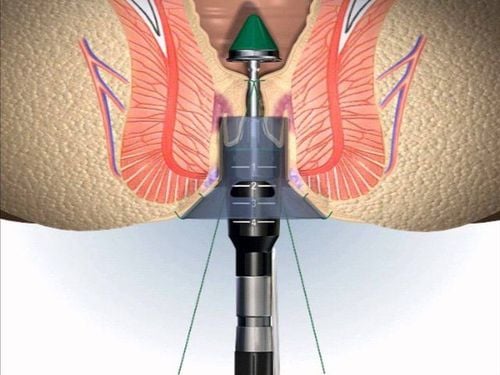
To arrange an appointment, please call HOTLINE or make your reservation directly HERE. You may also download the MyVinmec app to schedule appointments faster and manage your reservations more conveniently.
Reference source: babycenter.com




